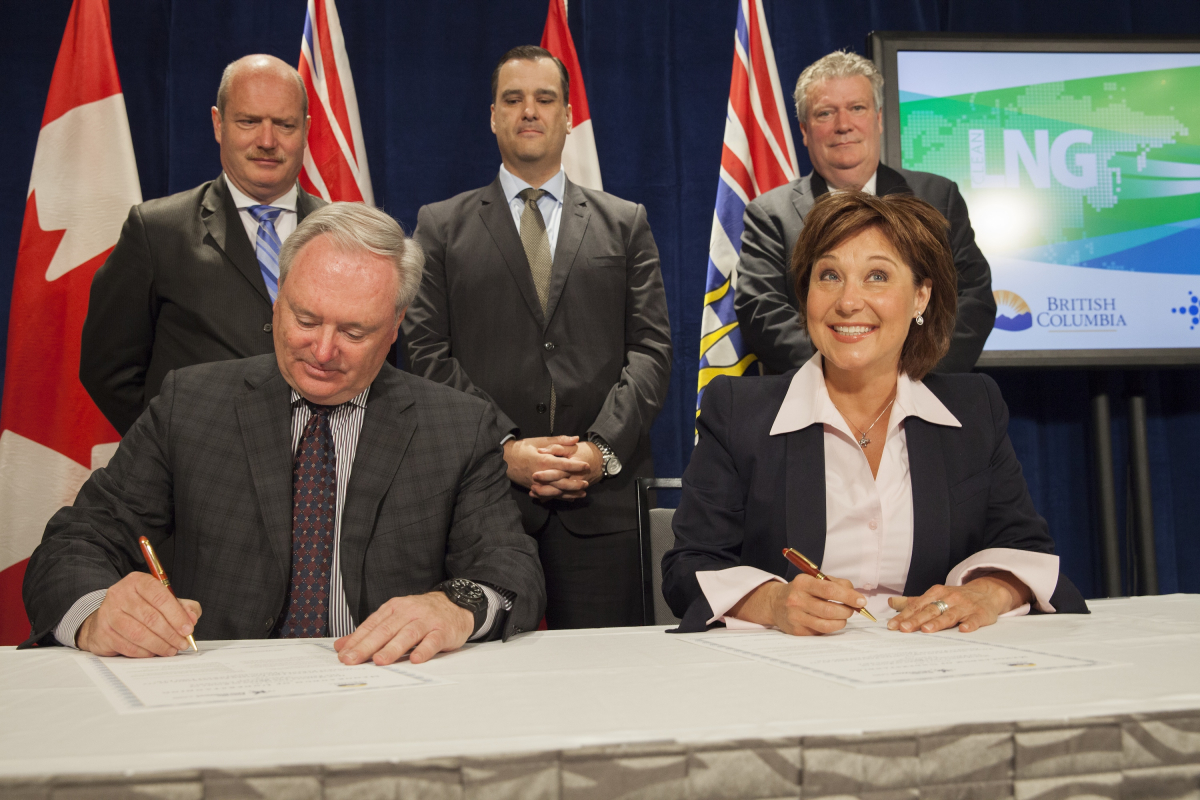Support strong Canadian climate journalism for 2025
This week, the B.C. government announced an agreement with Pacific Northwest LNG that is intended to provide long-term certainty for some project costs linked to provincial government policy. This is the same proposed project recently rejected by the Lax Kw'alaams due to concerns that it would harm critical salmon habitat in the Skeena estuary.
If approved, the agreement could limit the ability of future governments to strengthen environmental policies and tax rules that apply to LNG development. For example, if a future government decides the climate policies of 2015 are no longer adequate and wants Pacific Northwest LNG to reduce their carbon pollution, the province could be required to pay compensation. At this point, we don’t know how significant those costs could be.
According to the government’s media release, one of the four events that could trigger compensation is “if the Province increases the tax on the emission of greenhouse gases or carbon that applies exclusively to the processing in British Columbia of natural gas by liquefaction into LNG.” In other words, if the government decided to strengthen climate policy by implementing a carbon tax that applied exclusively to LNG terminals, they would likely be on the hook for compensation.
If the government used other approaches to strengthen climate policy, the implications are less clear and merit a number of questions:
- Would B.C. have to compensate Pacific Northwest LNG if the province decided to improvethe Greenhouse Gas Industrial Reporting and Control Act that was implemented last fall? It isn’t clear if the compliance costs stemming from the Act would be considered a tax or if those costs would be considered exclusive to LNG.
- Are there ways that compensation could be triggered if the province relies on economy-wide climate policies like the carbon tax? The government’s language implies otherwise because the carbon tax isn’t exclusive to LNG. That said, it’s important to test if increasing the carbon tax or broadening its coverage could result in a compensation claim.
- Would other approaches to improving environmental performance, such as requiring LNG terminals to use more renewable energy or mandating them to inspect for methane leaks more frequently, trigger compensation?
The agreement will be debated by the legislature this summer before being finalized. Hopefully these questions and others will be tested so that the amount of compensation that could be owed to Pacific Northwest LNG is clear.


Comments